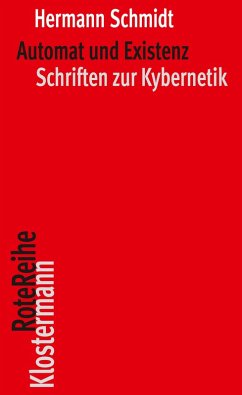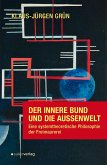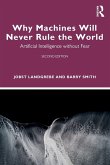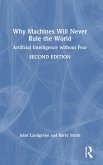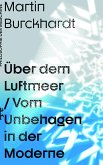Hermann Schmidt ist eine der Hauptgestalten in der Entwicklung der Kybernetik. Neben Norbert Wiener und doch ganz unabhängig von ihm begründet er Anfang der vierziger Jahre in Berlin die "Regelungstechnik". Ohne zu wissen, was Wiener ungefähr zur selben Zeit in den USA entdeckt, entfaltet Schmidt, der über ein profundes Ingenieurswissen verfügt, nach dem Krieg ein Technik-Denken, das sich immer mehr der Philosophie annähert. Ende der sechziger Jahre, nachdem die Kybernetik zum Beispiel in der Pädagogik geradezu populär geworden ist, findet Schmidt zu einer von der Kybernetik ausgehenden Anthropologie. Zu dieser Zeit war er bereits zu einer internationalen Galionsfigur der Kybernetik geworden. Seine Arbeit wurde als "epochemachend" bezeichnet, selbst noch für die Politik. Heute, in Zeiten des Siegeszuges einer super-intelligenten Technologie, die unsere Welt radikal verändern wird und bereits verändert, gehört die Berücksichtigung von Schmidts Werk zum Verständnis dessen, was hierund jetzt geschieht. Der Band "Automat und Existenz" bringt, von Peter Trawny ediert und kommentiert, erstmals die wichtigsten Texte dieses Technik-Denkers. Ein Vorwort stellt sie in den Zusammenhang der zeitgenössischen Diskussionen zwischen bekannten Philosophen wie Arnold Gehlen und Martin Heidegger.
Bitte wählen Sie Ihr Anliegen aus.
Rechnungen
Retourenschein anfordern
Bestellstatus
Storno

